Princenthal Nancy: Hannah Wilke

(fb2, 176 страниц, 891 Kb)
Жанр: Prestel
Издательство: Prestel, 2010
The importance of the work of Hannah Wilke (1940-1993) has never been clearer. In retrospect, her artwork, like her life, frames a heroic story about formal invention and social activism; about personal loyalties and individual freedom; and, above all, about breathtaking risk. A defining presence in a nascent community of women artists, determined to expose (and fix) the inequities of the fast-growing art world of the 1960s. At the same time, Wilke was an unapologetic individualist, who celebrated her relationships with men as well as women and frankly explored the pleasures of sexuality. Using a wide range of unconventional media, including latex and chewing gum as well as photography and film, she paid tribute — however irreverently — to her predecessors, from Duchamp to David Smith. A key concern was the body as instrument and object of visual expression; Wilke was most boldly honest in an unremitting self-exploration that she undertook without false modesty (when her naked body was an uncomplicated delight to behold) or shame (when it was mercilessly blighted by cancer). Beauty and glamour, power and individual prerogative, and the responsibility to account for one's place in the political landscape are all issues that Wilke explored thoroughly, and in which her work provides an essential seminar for younger artists. Wilke's photographs, films, installation and writing now find themselves in a cultural climate that once again seems more favourable to candour and controversy.